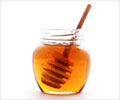Sweet but smart- honey is more than just a natural sweetener! Find out how this golden nectar can enhance your health in surprising ways.
- Honey is packed with antioxidants that support heart health and immunity
- It may help regulate blood sugar levels, but moderation is key
- Raw honey promotes wound healing and can soothe coughs in children
Honey never spoils! Archaeologists found 3,000-year-old honey in Egyptian tombs, and it was still safe to eat! #honeyfacts #natureknowsbest #medindia’
Health Benefits of Honey
Nutrient Rich
One tablespoon (20 g) of honey includes (1✔ ✔Trusted Source
Honey
Go to source):
- Calories: 61
- Fat: 0 g
- Protein: 0 g
- Carbs: 17 grams
- Fiber: 0 grams
- Riboflavin is 1% of the Daily Value (DV)
- Copper: 1% DV
Nonetheless, honey contains a high concentration of polyphenols, which are plant components that promote health.
Rich in Antioxidants
Honey that has been minimally treated contains several key bioactive plant components and antioxidants, including flavonoids and phenolic acids. Darker kinds often contain more antioxidants than lighter varieties. Antioxidants help to neutralize reactive oxygen species (ROS) in the body, which can accumulate in cells and cause harm. This damage can lead to premature aging, type 2 diabetes, and heart disease (2✔ ✔Trusted Source
Phenolic Compounds in Honey and Their Associated Health Benefits: A Review
Go to source). As a result, many of honey's health advantages are linked to its antioxidant concentration.
Better Than Sugar for Diabetics
Although honey, like all sugars, boosts blood sugar levels, the antioxidants it contains may help protect against metabolic syndrome and type 2 diabetes. Honey has been found by researchers to enhance adiponectin levels, a hormone that decreases inflammation and regulates blood sugar. There is additional evidence that daily honey consumption can improve fasting blood sugar levels in persons with type 2 diabetes (3✔ ✔Trusted Source
A Review on the Protective Effects of Honey against Metabolic Syndrome
Go to source).
While honey may be slightly better than refined sugar for diabetics, it should only be consumed in moderation. It's also worth noting that some companies dilute honey with simple syrup. Although honey adulteration is banned in most countries, it is nonetheless a prevalent issue.
Boosts Heart Health
Honey may also aid in preventing cardiovascular disease. It may help lower blood pressure, enhance blood lipid levels, regulate your heartbeat, and prevent the death of healthy cells, all of which can benefit your heart function and health (4✔ ✔Trusted Source
Cardioprotective Effects of Honey and Its Constituent: An Evidence-Based Review of Laboratory Studies and Clinical Trials
Go to source).
One observational research of more than 4,500 persons over the age of 40 years found that moderate honey consumption was associated with a decreased risk of high blood pressure in women (5✔ ✔Trusted Source
Associations between honey consumption and prehypertension in adults aged 40 years and older
Go to source). Raw honey also contains propolis, a resin produced by bees from sap-producing trees and similar plants. Propolis may help lower cholesterol and triglycerides (6✔ ✔Trusted Source
Evidence on the Health Benefits of Supplemental Propolis
Go to source).
However, there are no long-term human studies on honey and heart health. More research is needed to better understand how honey affects heart health.
Promotes Burn and Wound Healing
Topical honey treatment has often been used for wound and burn healing. This practice is still widespread. A study of 26 studies on honey and wound care discovered that it is particularly effective at healing partial-thickness burns and infected wounds after surgery (7✔ ✔Trusted Source
Honey as a topical treatment for wounds
Go to source).
Manuka honey, in particular, may offer therapeutic benefits for burns. However, if you have a severe burn, home remedies are no substitute for emergency care, and you should seek medical help right away (8✔ ✔Trusted Source
Health Benefits of Manuka Honey as an Essential Constituent for Tissue Regeneration
Go to source). Honey's therapeutic qualities, according to researchers, are due to its antibacterial and anti-inflammatory properties (9✔ ✔Trusted Source
Honey: a potential therapeutic agent for managing diabetic wounds
Go to source).
Suppresses Coughing in Children
Coughing is a typical concern in children suffering from upper respiratory infections. These infections can have an impact on children's and parents' sleep and overall well-being.
An analysis of multiple research on honey and cough in children discovered that honey appeared to be more beneficial than diphenhydramine in treating cough symptoms. It may also assist in shortening cough duration (10✔ ✔Trusted Source
Honey for acute cough in children
Go to source). Another review stated that it may enhance sleep quality for both children with coughs and their parents. Furthermore, unlike certain cough treatments, honey has no adverse effects (11✔ ✔Trusted Source
Is honey an effective treatment for acute cough in children?
Go to source).
However, honey should never be given to children under the age of one year due to the risk of botulism.
Adding Honey to Your Diet
Honey is frequently an easy addition to your diet. Honey can be used to get a minor boost of antioxidants in the same manner that sugar is used. It is ideal for sweetening plain yogurt, coffee, or tea. You may also use it to cook and bake.Remember, honey is a form of sugar, therefore eating it will raise your blood sugar levels. Consuming big amounts of honey, especially over time, can lead to weight gain and increase your risk of diseases such as type 2 diabetes or heart disease.
Is it Healthy to Consume One Spoonful of Honey Each Day?
It depends. Moderation is essential, but your individual health needs must also be considered. Honey is a carbohydrate with a high sugar content. It contains at least 60 calories per tablespoon and has a high glycemic index (it elevates blood sugar quickly). If you need to control your blood sugar or weight, including honey in your diet may not be appropriate.A teaspoon of honey per day may be sufficient for you as long as you limit any other added sugars and consume a nutrient-dense diet. A healthcare practitioner can help you assess whether honey is good for you.
Honey contains healthy chemicals such as antioxidants and propolis, which may provide a variety of health benefits. It's a terrific sugar substitute, but only in moderation, as it still behaves like sugar in your body. Also, honey should not be consumed by children under the age of one year due to the risk of botulism.
References:
- Honey - (https://fdc.nal.usda.gov/food-details/1103956/nutrients)
- Phenolic Compounds in Honey and Their Associated Health Benefits: A Review - (https://pubmed.ncbi.nlm.nih.gov/30208664/)
- A Review on the Protective Effects of Honey against Metabolic Syndrome - (https://pubmed.ncbi.nlm.nih.gov/30072671/)
- Cardioprotective Effects of Honey and Its Constituent: An Evidence-Based Review of Laboratory Studies and Clinical Trials - (https://pubmed.ncbi.nlm.nih.gov/32455701/)
- Associations between honey consumption and prehypertension in adults aged 40 years and older - (https://pubmed.ncbi.nlm.nih.gov/31760826/)
- Evidence on the Health Benefits of Supplemental Propolis - (https://pubmed.ncbi.nlm.nih.gov/31717277/)
- Honey as a topical treatment for wounds - (https://pubmed.ncbi.nlm.nih.gov/25742878/)
- Health Benefits of Manuka Honey as an Essential Constituent for Tissue Regeneration - (https://pubmed.ncbi.nlm.nih.gov/28901255/)
- Honey: a potential therapeutic agent for managing diabetic wounds - (https://pubmed.ncbi.nlm.nih.gov/25386217/)
- Honey for acute cough in children - (https://pubmed.ncbi.nlm.nih.gov/29633783/)
- Is honey an effective treatment for acute cough in children? - (https://pubmed.ncbi.nlm.nih.gov/27280298/)
Source-Medindia










